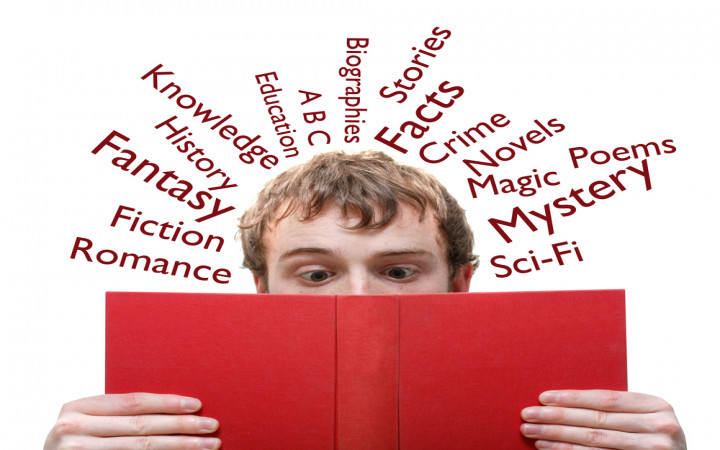Do you love to read? We hope so! It's so important to be able to read well. Just think of all the reading you do in a typical day.
Of course, you have to read at school. You may also have a favorite book that you like to read on the bus or before you go to bed. But there are many other times throughout the day that you need to read.
You read the signs you see along the road. You read the menu at your favorite restaurant. You read the television guide to find when your favorite show is on. If you think about it, you're probably reading all day long!
But what do you really like to read when you have the time to sit down and relax with a good book? Maybe you like real-life stories about sports heroes. Perhaps thrilling zombie stories are more your speed. Or maybe a romance lifts your spirits. Still others might prefer to read a biography of a famous scientist or inventor.
These are all different examples of genres. A genre is a category of literature or other form of art or entertainment (such as paintings or music) based on certain defining criteria. Genres change over time. Some become unpopular and go away while new ones spring up as trends emerge.
Genres can be very broad or very narrow. The broadest literary genres are fiction and nonfiction.
Of course, within those broad genres, there are many other narrower genres. For example, some common narrower literary genres include comedy, fantasy, science fiction, historical fiction and biographies. A very specific literary genre within these narrower genres might be, for example, short stories for teens about the zombie apocalypse!
There are similar genres within music, too. What type of music do you like? Pop? Rock? Country? Classical? Reggae?
Musical genres can be both broad and narrow, just like literary genres. For example, if you like rock music, you might prefer classic rock or hard rock instead of alternative rock.
Genres got their start long, long ago when Greek philosophers Aristotle and Plato first came up with a classification system that divided literature into three genres: poetry, drama and prose. If you've been to a library or a book store lately, you know that the concept of genre has come a long way since the time of the ancient Greeks.
Genres are a huge part of our modern popular culture. In addition to being a way to classify different types of literature or entertainment, genres become a way to define yourself as a person.
Can you think of any friends or family members that identify with a particular genre to such an extent that the genre tends to define their thoughts and actions? For example, do you know someone who likes a certain type of music so much that they begin to dress and act like their favorite performers?




